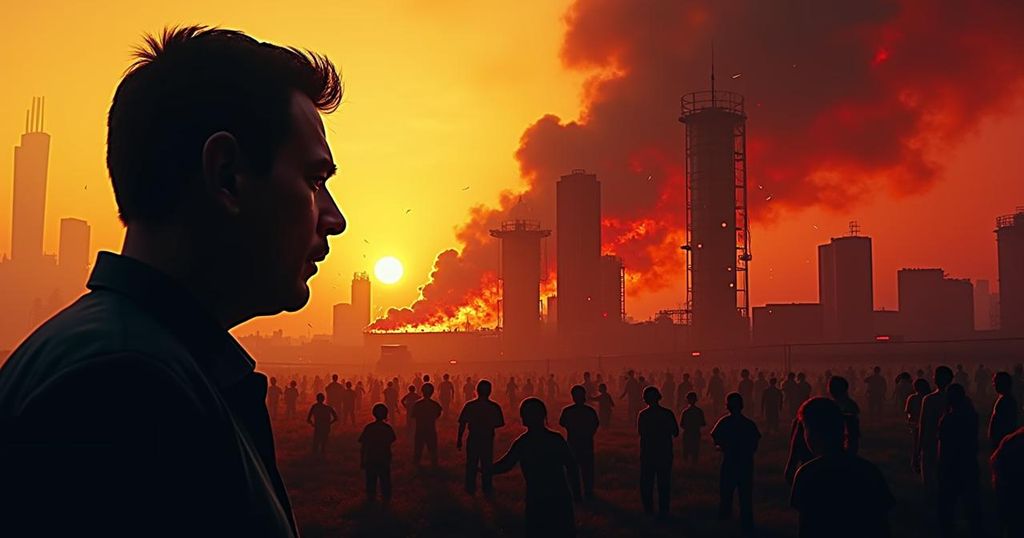U.S. Secretary of State Antony Blinken and Argentine Foreign Minister Diana Mondino addressed the situation in Venezuela during the U.N. General Assembly, condemning President Maduro’s authoritarian regime and the resultant refugee crisis affecting Latin America. They called for recognition of opposition leader Edmundo González Urrutia’s victory and emphasized the need for an inclusive dialogue to restore democracy in Venezuela.
On September 26, during the U.N. General Assembly in New York, U.S. Secretary of State Antony Blinken and Argentine Foreign Minister Diana Mondino convened to address the grave situation in Venezuela. This meeting aimed to present a consolidated stance from the United States and Argentina, South America’s largest economy, against the authoritarian regime led by President Nicolas Maduro. Foreign Minister Mondino commented on the alarming developments in Venezuela, highlighting the dangers posed by “authoritarian winds” in the region and expressing her hope that these trends do not escalate further. Blinken echoed these sentiments, condemning Maduro’s refusal to accept defeat in the July presidential elections and the violent crackdown on dissent that has resulted in millions fleeing the country. The officials reaffirmed their commitment to the human rights of Venezuelans, advocating for an inclusive dialogue between Maduro and the democratic opposition to facilitate a peaceful transition to democracy. This position garnered backing from representatives of 40 nations and organizations, including the European Union and the Organization of American States, who collectively recognized the electoral victory of opposition candidate Edmundo González Urrutia and demanded respect for democratic processes in Venezuela. Moreover, the refugee crisis stemming from Maduro’s regime has severely impacted Argentina, with Mondino noting that approximately 7.8 million Venezuelans have sought refuge in other Latin American nations. She cautioned that this influx could lead to potential xenophobia, a sentiment previously unseen in the region. Additionally, the Argentine Embassy in Caracas is currently facing challenges, compounded by Maduro’s regime amidst calls for the return of opposition supporters sheltering within its premises. Finally, President Javier Milei of Argentina recently declared the U.N. a “failing organization” imposing a socialist agenda on its member states, further highlighting the contentious political atmosphere surrounding the issue.
The ongoing political turmoil in Venezuela, led by President Nicolas Maduro, has generated significant concerns regarding human rights abuses and democratic integrity in the country. Following a controversial presidential election on July 28, where Maduro allegedly lost to an opposition candidate, his administration has intensified crackdowns on dissent and protests, leading to a humanitarian crisis characterized by mass emigration. Neighboring countries, particularly in South America, are bearing the brunt of this exodus, resulting in severe socio-economic and political ramifications across the continent. The response from international leaders, particularly from the U.S. and Argentina, reflects a growing urgency to address these destabilizing effects and restore democratic governance in Venezuela.
In conclusion, the diplomatic discussions held between U.S. Secretary of State Antony Blinken and Argentine Foreign Minister Diana Mondino underscore the urgent need for a collective international response to the destabilization caused by Venezuela’s current regime. Their commitment to supporting human rights and a return to democratic processes in Venezuela, along with the recognition of the adverse impacts of the refugee crisis on regional stability, highlights the importance of collaborative efforts among nations to address authoritarian challenges in Latin America. The situation in Venezuela remains critical, necessitating sustained attention and involvement from the international community.
Original Source: www.upi.com






